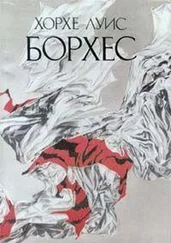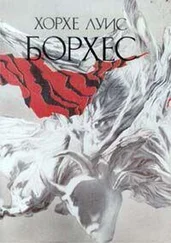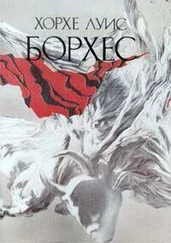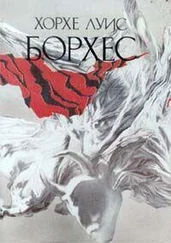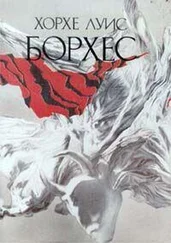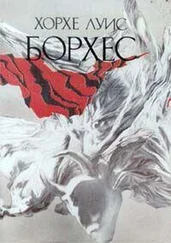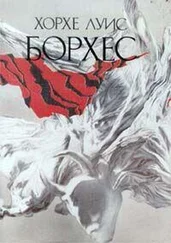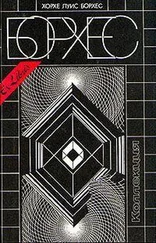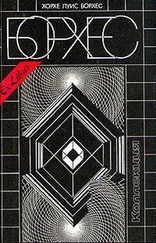Хорхе Борхес - Collected Fictions
Здесь есть возможность читать онлайн «Хорхе Борхес - Collected Fictions» весь текст электронной книги совершенно бесплатно (целиком полную версию без сокращений). В некоторых случаях можно слушать аудио, скачать через торрент в формате fb2 и присутствует краткое содержание. Год выпуска: 1999, ISBN: 1999, Издательство: Penguin (UK), Жанр: Старинная литература, на английском языке. Описание произведения, (предисловие) а так же отзывы посетителей доступны на портале библиотеки ЛибКат.
- Название:Collected Fictions
- Автор:
- Издательство:Penguin (UK)
- Жанр:
- Год:1999
- ISBN:9780140286809
- Рейтинг книги:5 / 5. Голосов: 1
-
Избранное:Добавить в избранное
- Отзывы:
-
Ваша оценка:
- 100
- 1
- 2
- 3
- 4
- 5
Collected Fictions: краткое содержание, описание и аннотация
Предлагаем к чтению аннотацию, описание, краткое содержание или предисловие (зависит от того, что написал сам автор книги «Collected Fictions»). Если вы не нашли необходимую информацию о книге — напишите в комментариях, мы постараемся отыскать её.
Collected Fictions — читать онлайн бесплатно полную книгу (весь текст) целиком
Ниже представлен текст книги, разбитый по страницам. Система сохранения места последней прочитанной страницы, позволяет с удобством читать онлайн бесплатно книгу «Collected Fictions», без необходимости каждый раз заново искать на чём Вы остановились. Поставьте закладку, и сможете в любой момент перейти на страницу, на которой закончили чтение.
Интервал:
Закладка:
The name of the soldier and the pathetic scene of the bestowal struck me as "literary" in the worst sense of the word. It all made me a bit leery.
"And you, now, possess Shakespeare's memory?"
"What I possess," Thorpe answered, "are still two memories—my own personal memory and the memory of that Shakespeare that I partially am. Or rather, two memories possess me. There is a place where they merge, somehow. There is a woman's face ... I am not sure what century it belongs to."
"And the one that was Shakespeare's—" I asked. "What have you done with it?"
There was silence.
"I have written a fictionalized biography," he then said at last, "which garnered the contempt of critics but won some small commercial success in the United States and the colonies. I believe that's all.... I have warned you that my gift is not a sinecure. I am still waiting for your answer."
I sat thinking. Had I not spent a lifetime, colorless yet strange, in pursuit of Shakespeare? Was it not fair that at the end of my labors I find him?
I said, carefully pronouncing each word:
"I accept Shakespeare's memory."
Something happened; there is no doubt of that. But I did not feel it happen.
Perhaps just a slight sense of fatigue, perhaps imaginary.
I clearly recall that Thorpe did tell me:
"The memory has entered your mind, but it must be 'discovered.' It will emerge in dreams or when you are awake, when you turn the pages of a book or turn a corner. Don't be impatient; don't invent recollections. Chance in its mysterious workings may help it along, or it may hold it back. As I gradually forget, you will remember. I can't tell you how long the process will take."
We dedicated what remained of the night to a discussion of the character of Shylock. I refrained from trying to discover whether Shakespeare had had personal dealings with Jews. I did not want Thorpe to imagine that I was putting him to some sort of test. I did discover (whether with relief or uneasiness, I cannot say) that his opinions were as academic and conventional as my own.
In spite of that long night without sleep, I hardly slept at all the following night. I found, as I had so many times before, that I was a coward. Out of fear of disappointment, I could not deliver myself up to openhanded hope. I preferred to think that Thorpe's gift was illusory. But hope did, irresistibly, come to prevail. I would possess Shakespeare, and possess him as no one had ever possessed anyone before—not in love, or friendship, or even hatred. I, in some way, would be Shakespeare. Not that I would write the tragedies or the intricate sonnets—but I would recall the instant at which the witches (who are also the Fates) had been revealed to me, the other instant at which I had been given the vast lines:
And shake the yoke of inauspicious stars
From this world-weary flesh.
I would remember Anne Hathaway as I remembered that mature woman who taught me the ways of love in an apartment in Lübeck so many years ago. (I tried to recall that woman, but I could only recover the wall-paper, which was yellow, and the light that streamed in through the window. This first failure might have foreshadowed those to come.)
I had hypothesized that the images of that wondrous memory would be primarily visual. Such was not the case. Days later, as I was shaving, I spoke into the mirror a string of words that puzzled me; a colleague informed me that they were from Chaucer's"A. B. C."One afternoon, as I was leaving the British Museum, I began whistling a very simple melody that I had never heard before.
The reader will surely have noted the common thread that links these first revelations of the memory: it was, in spite of the splendor of some metaphors, a good deal more auditory than visual.
De Quincey says that man's brain is a palimpsest. Every new text covers the previous one, and is in turn covered by the text that follows—but all-powerful Memory is able to exhume any impression, no matter how momentary it might have been, if given sufficient stimulus. To judge by the will he left, there had been not a single book in Shakespeare's house, not even the Bible, and yet everyone is familiar with the books he so often repaired to: Chaucer, Gower, Spenser, Christopher Marlowe, Holinshed's Chronicle, Florio's Montaigne, North's Plutarch. I possessed, at least potentially, the memory that had been Shakespeare's; the reading (which is to say the rereading) of those old volumes would, then, be the stimulus I sought. I also reread the sonnets, which are his work of greatest immediacy. Once in a while I came up with the explication, or with many explications. Good lines demand to be read aloud; after a few days I effortlessly recovered the harsh f's and open vowels of the sixteenth century.
In an article I published in the Zeitschrift für germanische Philologie, I wrote that Sonnet 127 referred to the memorable defeat of the Spanish Armada. I had forgotten that Samuel Butler had advanced that same thesis in 1899.
A visit to Stratford-on-Avon was, predictably enough, sterile.
Then came the gradual transformation of my dreams. I was to be granted neither splendid nightmares à la de Quincey nor pious allegorical visions in the manner of his master Jean Paul*; it was unknown rooms and faces that entered my nights. The first face I identified was Chapman's; later there was Ben Jonson's, and the face of one of the poet's neighbors, a person who does not figure in the biographies but whom Shakespeare often saw.
The man who acquires an encyclopedia does not thereby acquire every line, every paragraph, every page, and every illustration; he acquires the possibility of becoming familiar with one and another of those things. If that is the case with a concrete, and relatively simple, entity (given, I mean, the alphabetical order of its parts, etc.), then what must happen with a thing which is abstract and variable— ondoyant et divers? A dead man's magical memory, for example?
No one may capture in a single instant the fullness of his entire past.
That gift was never granted even to Shakespeare, so far as I know, much less to me, who was but his partial heir. A man's memory is not a summation; it is a chaos of vague possibilities. St. Augustine speaks, if I am not mistaken, of the palaces and the caverns of memory. That second metaphor is the more fitting one. It was into those caverns that I descended.
Like our own, Shakespeare's memory included regions, broad regions, of shadow—regions that he willfully rejected. It was not without shock that I remembered how Ben Jonson had made him recite Latin and Greek hexameters, and how his ear—the incomparable ear of Shakespeare— would go astray in many of them, to the hilarity of his fellows.
I knew states of happiness and darkness that transcend common human experience.
Without my realizing it, long and studious solitude had prepared me for the docile reception of the miracle. After some thirty days, the dead man's memory had come to animate me fully. For one curiously happy week, I almost believed myself Shakespeare. His work renewed itself for me. I know that for Shakespeare the moon was less the moon than it was Diana, and less Diana than that dark drawn-out word moon. I noted another discovery: Shakespeare's apparent instances of inadvertence—those absences dans l'infini of which Hugo apologetically speaks—were deliberate. Shakespeare tolerated them—or actually interpolated them—so that his discourse, destined for the stage, might appear to be spontaneous, and not overly polished and artificial (nicht allzu glatt und gekünstelt). That same goal inspired him to mix his metaphors:
Читать дальшеИнтервал:
Закладка:
Похожие книги на «Collected Fictions»
Представляем Вашему вниманию похожие книги на «Collected Fictions» списком для выбора. Мы отобрали схожую по названию и смыслу литературу в надежде предоставить читателям больше вариантов отыскать новые, интересные, ещё непрочитанные произведения.
Обсуждение, отзывы о книге «Collected Fictions» и просто собственные мнения читателей. Оставьте ваши комментарии, напишите, что Вы думаете о произведении, его смысле или главных героях. Укажите что конкретно понравилось, а что нет, и почему Вы так считаете.

